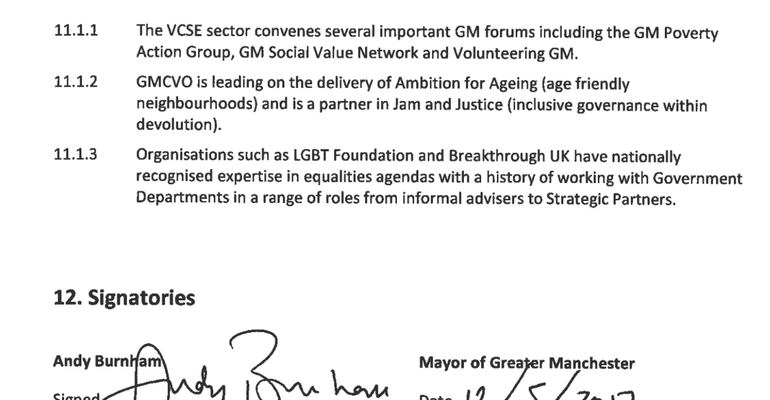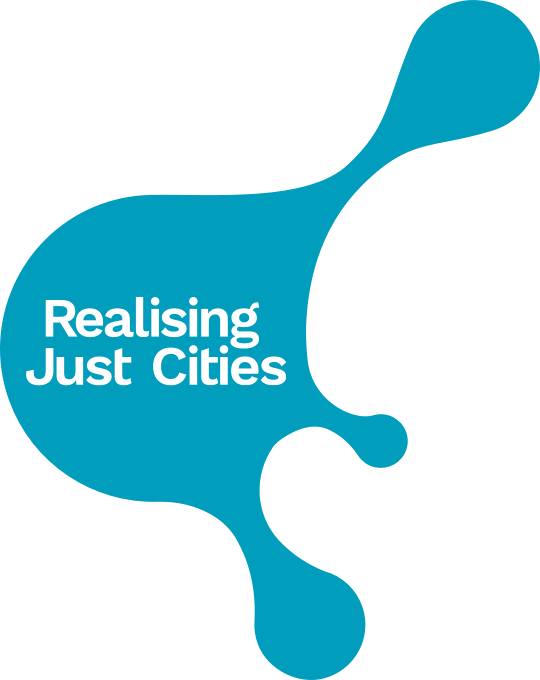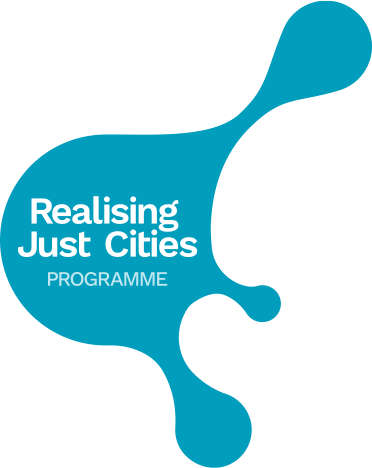Building a Community for Co-Production

18 months ago, the Greater Manchester Health and Social Care Partnership (GMHSCP) adopted a Memorandum of Understanding with representatives of the local VCSE sector. The signatories included faith groups, community groups, NGOs and voluntary organisations, as well as key actors from the Combined Authority. They committed to work together in pursuit of better services and greater community involvement. As the screenshot shows (read the full text here) Jam & Justice appeared as a promising example of work already ongoing.
The Memorandum of Understanding provided the chronological jumping-off point at the introduction of a networking event hosted by Greater Manchester Centre for Voluntary Organisation (GMCVO). This was the second coming-together of organisations from GMCVO’s contact book interested to think, learn and share more about the practice of co-production. The Memorandum of Understanding helps to explain the prominence of Health & Social Care actors in that co-production exchange.
The first portion of the morning was co-led by Maddy Hubbard and Naomi Davies of GMHSCP. Maddy is GMHSCP’s Co-Production Project Manager. She spoke briefly about the “umbrella of values” that has emerged from the so-called Elephants Project—an initiative that brought together those responsible for planning the policy response to complex challenges (e.g. homelessness) with people with lived experience of those challenges.. Naomi has a remit for Person and Community Centred Approaches. She convened round-table discussions about the virtues (and potential vices) of establishing a network amongst co-production practitioners.
Attendees also heard from an organisation working on mental health about the ways co-production had been embedded in their practices and structure, and from Claire Hannibal of Manchester Metropolitan University, who is testing a theory of co-production based on business management research.
Towards the end of the session, those present were offered a choice of workshops: Maddy Hubbard led a reflection on co-productive values and person-centred approaches; Catriona Duncan-Rees focused on how to stop co-production (to step backward and ask the question of how to keep it going); option three was a presentation-come-discussion from two of the Jam & Justice Action Research Collective: Andrew Burridge and Alice ToomerMcAlpine.
There was strong interest in the work of the People’s Procurement project. Some present expressed disappointment about the apparent outcome of earlier attempts to increase the importance of social value commitments within procurement decisions. The impossibility of smaller organisations bidding in the terms required—or undertaking years of work unpaid and with the risk of no pay—were strongly felt. The group welcomed the suggestion that one solution might be partnerships between corporate bidders and VCSE organisations, so that social value commitments related to real local needs without automatically requiring the VCSE organisations to be the bidders. There was also interest in the prospect of evidence that could be used to justify the costs of co-production. VCSE representatives would really value a reference point to prove the merit of how they’re doing things, to make their case to funding bodies. There were voices in favour of more radical change too: when we expect change to happen from the top, we cede the power that belongs to us. Or as Audre Lorde said (and one of the workshop participants reiterated), “self help is a political act”.
Four ARC members gave time to attend this event, which presented good opportunities for networking. Andrew, Alice, Amanda and Adrian will be conveying more about the different conversations to others in the Action Research Collective—and picking up the connections, especially as our Coalitions for Change process kicks off next month.
--Iona Hine is working alongside the Action Research Collective with a focus on impact. She has come to think of herself as a strategic fly-on-the-wall, and takes copious notes.




